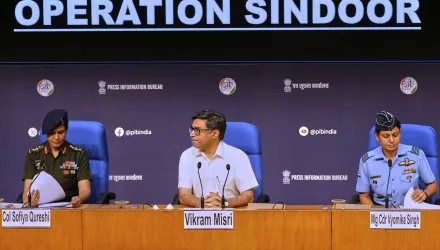Why do great powers use force to support or overthrow foreign governments? Scholars have long wrangled over whether security or economic interests, affective ties, or domestic political pressures motivate states to conduct military interventions abroad. But no matter the particular interests they stress, arguments on intervention tend to tell the same story: where interest levels are high and expected costs of military action are low, intervention occurs. Yet, this is precisely what makes great power military intervention so puzzling. Given sufficiently powerful interests and low expected costs, great powers should be able to use the threat of intervention to coerce regimes in weaker states to cooperate. If the threat of intervention is credible, the actual use of force should be unnecessary. Why then do great powers believe that some regimes will cooperate while others will not? This seminar will discuss how the domestic political incentives of ruling parties in targeted states interact with the strategic incentives of great powers to produce a rationale for great power foreign military intervention.
Please join us! Coffee and tea provided. Everyone is welcome, but admittance will be on a first come–first served basis.



